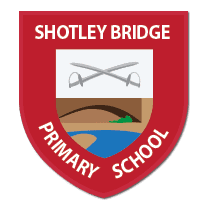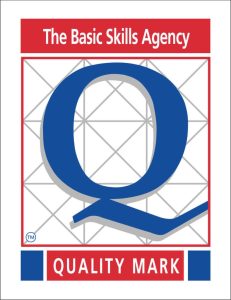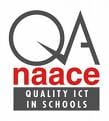At Shotley Bridge Primary School, we pride ourselves on our inclusive approach to education and school life. Staff recognise the individuality of all our children/young people and that children and young people learn and develop in different ways and may need extra help and support at various points throughout their time at school. We endeavour to support every child to reach their potential, regardless of their level of need. Some children/young people, at some time in their school life might have additional or different needs and it may be that they will be on our SEN register for a short period or a long period of time. However, children’s needs are frequently reassessed through an assess, plan, do, review cycle, in order to ensure that the provision is appropriate in supporting progress.
Quality First Teaching
At Shotley Bridge Primary School, our SENCO, Mrs Dryden oversees all SEN provision, working alongside class teachers to ensure different approaches to teaching are implemented and to monitor progress of any child/young person requiring additional support across the school. The class teacher will oversee, plan and work with each child with SEND in their class to ensure that progress in each area is made. This is Quality First Teaching and is where the work is highly differentiated and suits the needs of all children, it comes in the form of a lesson. Alongside Quality First Teaching, that your child will receive in lessons, there may be a Teaching Assistant (TA) working with your child, either individually or as part of a group.
Additional School Support
Where a child’s needs require additional to, or different from, the provision made for other children their age a support plan will be developed. The class teacher, with the support of the SENCO where necessary, will meet with the child/young person and their families to develop a plan of support. This plan will contain short term targets and outline the support the child/young person will receive to help them achieve these targets. The targets may be linked to any of the four broad areas of SEND, academic progress or other areas beneficial for the individual. Support at this stage may include support from adults in school, other than the class teacher and may take place outside of the classroom. This includes support from the Pupil Wellbeing Lead. The regularity of these sessions will be explained to families when the support starts and they will receive a copy for their own reference. Plans will be reviewed at least once a term.
Working with outside agencies
Where progress is not evident following the assess, plan, do, review cycle or when staff feel more specialist assessment, support or advice is necessary there are a range of external agencies which can offer support. The class teacher or SENCO, in collaboration with and with the consent of families will complete a referral to the relevant agency, families will be kept informed at each stage of the referral and of subsequent advice and support. At Shotley Bridge Primary School we work with all Durham County services through the Local Offer, including the Autism and Social Communication Team, Cognition and Learning and the Emotional Wellbeing and Effective Learning team. We also have support from an Educational Psychologist, SALT, CAMHS and the Mental Health Support Team.
Adaptations
To ensure all pupils have access to the curriculum at an appropriate level and are in a learning environment which meets their needs, there are some actions and adaptations we may take:
- To identify at the earliest opportunity, all children that need special consideration to support their needs (whether these are educational, social, physical or emotional).
- Quality first teaching adjustments, for example providing a visual time table
- Ensure that teaching staff are aware of and sensitive to the needs of all pupils, through sharing good practice and enhanced transition for SEND pupils.
- Modifications to the curriculum to meet individual needs, including the use of an engagement model when needed.
- Providing access to quiet well-being spaces for emotional regulation.
- The deployment of Teaching Assistants to support the changing needs of children/young people.
- Providing access to sensory equipment such as ear defenders, fidgets or wobble cushions.
- Work in partnership with parents, carers, children and relevant external agencies in order to provide for children’s special educational needs and disabilities.
- Ensure that all children with SEN are fully included in all activities of the school in order to promote the highest levels of achievement.
- To regularly review the policy and practice in order to achieve best practice.
The provision for children with SEN across the four Broad Areas of Need may include some of the following interventions;
Communication and interaction: Speech and Language interventions include a range of programmes such as Speech and Language Link, Lego Therapy, Social Stories and Time to Talk. In addition to this we will deliver specific programmes and strategies suggested by Speech and Language Therapists (SALT) where relevant.
Cognition and Learning: Rapid catch up, daily reading, Lexia and basic skills boosters are all examples of interventions used in school to support children’s learning. In addition to this we will also use intervention programmes recommended by outside agencies to work on skills such as Working Memory, Visual Perception and Visual Discrimination.
Social, Emotional and Mental Health Difficulties: Interventions such as Nurture, The Incredible 5 Point Scale, Little Book of Beasties, Lego Therapy, Draw Talk Therapy and Zones of regulation are all used within school to support children with difficulties in these areas. We take a whole school approach to mental health and work with children to help them to understand their feelings and emotions and the effects that they can have on physical health. We use the Mental Health Support Team to deliver cohort interventions or small group work as necessary. More recently we have taken part in the Durham Resilience Project and the Anxious About School Project. In each building we have well-being rooms which act as quiet spaces for children to regulate their emotions and prepare to return to the classroom environment.
Sensory and/or Physical Difficulties: Each morning sensory movement groups support regulation and staff offer movement breaks for those children who benefit from them. We have a whole school approach to regulation using movement throughout the day alongside a wealth of fidgets and sensory equipment. On both sites there are quiet outdoor spaces for children who find the playground too noisy. In the early years children who need support with fine and gross motor skills are supported through gross motor interventions and fine motor development through activities such as Dough Disco, Finger Gym and other coordination activities.
More details on how we adapt information, our environment and curriculum can be found in the Accessibility Plan.
How are the Governors involved and what is their responsibility?
Governors are kept up to date on the progress of SEN children. Individual children are not named in this instance and confidentiality is maintained at all times. Mrs Moria Barnes, our SEND link governor, is responsible for SEND and she liaises with the Head Teacher and SENCO, to discuss progress, provision and they also discuss the funding arrangements of staff and resources for SEND children. The Governors agree priorities for spending within the SEN budget with the overall aim that all children receive the support they need in order to make progress.







